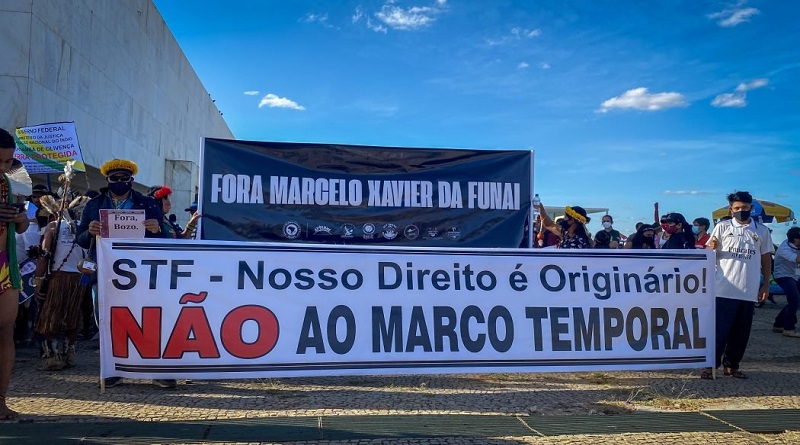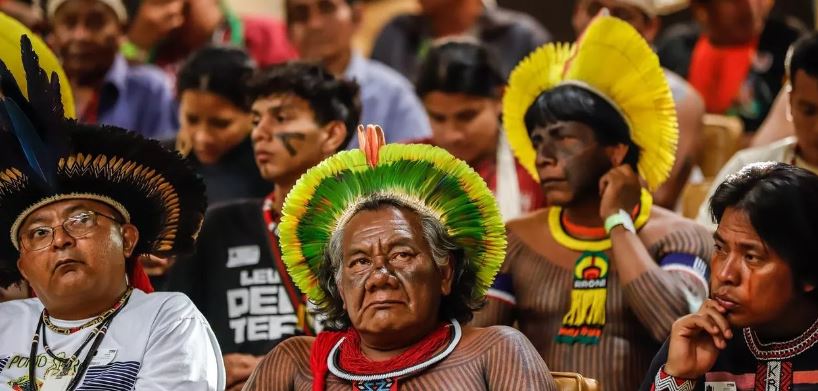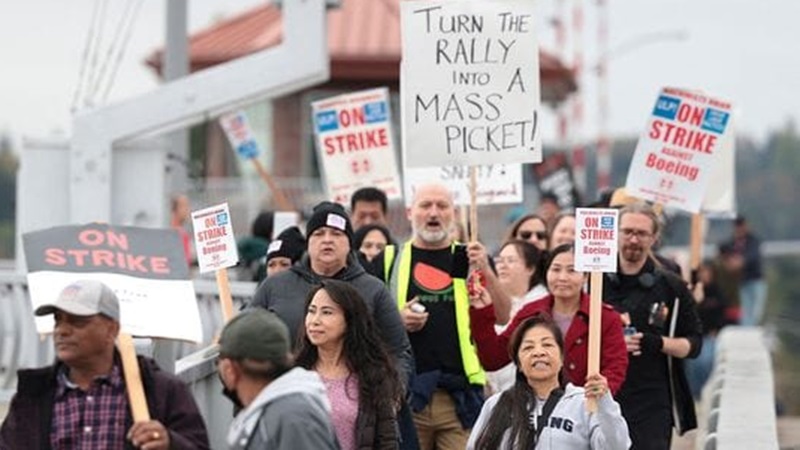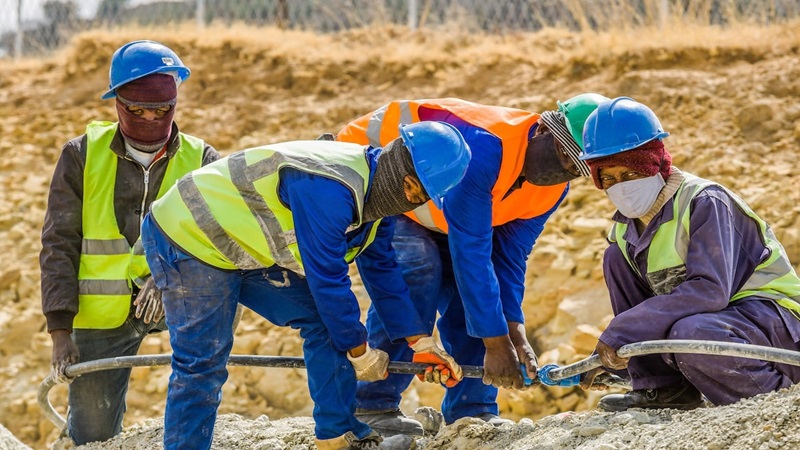Marco Temporal: a despicable attempt to rob the indigenous people of Brazil of their land
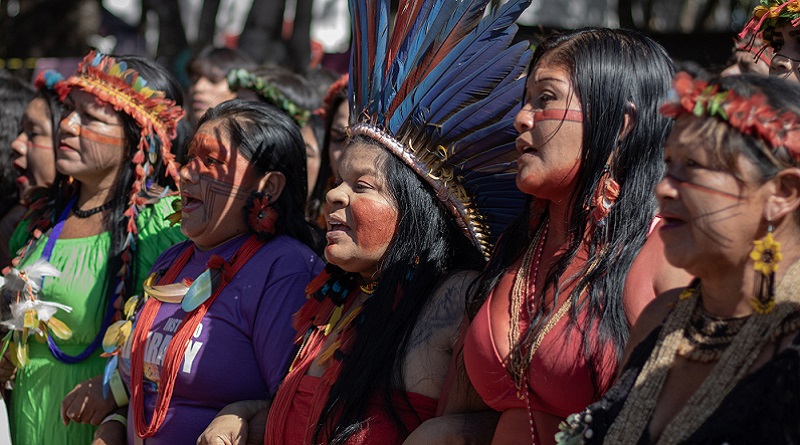
By Harsh Thakor
Democrats and true progressives are shaken by the implementation of the “Marco Temporal” in Brazil [Time frame, law which denies the claims of indigenous peoples on their ancestral lands] law at the Commission of the Agrarian Reform and Agriculture of the Chamber of Deputies.
It will place into oblivion 523 years of genocide and deny five centuries of theft of indigenous lands by the Portuguese invaders and the privileged Brazilian lords of lands and slaves, as well as their descendants and beneficiaries. Those who have always ruled the Country continue to hold a monopoly.
The R$ 364 billions that they obtained from Luiz Inácio through the Safra Plan was far from enough. The big landlords also want to acquire the indigenous lands in addition to the public lands they already have. The current government camouflages reality by establishing the Ministry of Indigenous Peoples, headed by an indigenous, but with no perquisite of delimitation and ratification of land.
(On Friday President Lula da Silva sanctioned part of the bill approved by the National Congress that established a time frame for the demarcation of indigenous lands in the country.)
Os Kayapó se manifestando hoje contra o Marco Temporal. Eles votaram contra Bolsonaro porque acreditaram nas promessas de apoio de Lula. Veta tudo, Lula!
Por que tentar agradar aqueles que sempre te detestarão, abandonando os que sempre estiveram contigo? #VetaTudoLulaPL2903 pic.twitter.com/V9Gb0dG1ME
— Rodolfo Salm 🌳🌴🌴🌴🏹😺 (@rodosalm) October 19, 2023
Background
Of the R$ 364.22 billion handout, R$ 61.14 billion, around 16 percent, will pour into the hands of the upper layers of medium-sized landowners. The remaining R$ 303.08 billion will go the big landlords.
On June 27, Luiz Inácio, the President of Brazil, declared his “Harvest Plan” (Plano Safra) for the period 2023-24. The plan embarking on a budget of 364.22 billion Brazilian Reais (R$), is championing the welfare of big landlords and the upper layers of the medium-sized landowners. The record breaking budget is 26.8% more than the budget of the Harvest Plan for 2022-23 by the previous Brazilian President, Jair Bolsonaro.
The Parliamentary Commission of Inquiry [translator’s note: CPI] which was created to defend the Latifundium, the land grabbers of the Union who have mortgaged the Nation, and also to destroy the base of the peasant movement with the struggle for land almost reaching its end. The old latifundium, including the so-called “agrobusiness” is only the crystallised form of Brazil’s hundred-year-old condemnation of being a mere raw product supplier at low prices to foreign powers. It has always been the prop or sown the seeds of the semi-colonial system of oppression and exploitation of our people. System of endless political, economic, social, moral and now military crisis, which has been going on for seven years, making a hell the life of the vast majority of Brazilians.
The so-called “agrarian reform” promised by the government of Luiz Inácio da Silva has only fulfilled 10% of the peasant settlements it had promised.
Championing the interests of the big landlords by Lula and his government is a phenomenon since the start of this government. Currently, Lula is banging every nail in the wall in order to preserve the interests of the big landlords and promote their welfare. After the last negotiations with Macron, Lula expressed “I intend to talk to… Macron because France is very tough on defending its agricultural interests…it’s wonderful they defend their agriculture, but they have to understand that others also have the right to defend theirs”.
The other big beneficiaries of this agreement are the imperialists from the EU. They will increase their exports to Brazil, specifically manufactured products like machinery, and this will invite more penetration of the Brazilian economy with imperialism. In the meantime, Lula is demanding to unfold the agreement, to scrap French protectionism to achieve a true agreement of alleged “free trade” in order to sell-out the country to the mercy of imperialism.
The surplus trade balance (at the expense of exporting primary products), high technology, latest machinery and poisons and fertilizers, and more, is a sheer disguise. The latifundium is unproductive, it profits because it does not pay the land, does not pay taxes, has government subsidy and has cheap or slave labour. The latifundium is a tumour of Brazil that needs to be wiped away.
The peasants occupy unproductive properties to enforce the Land Statute of the 1964 military coup. The peasant masses aim to capture what is rightfully theirs. They don’t want to merely wait for the “government’s agrarian reform”, and wish to divide the land to work on their plot. completely destroyed.
Since the 1980s, with resurgence in the peasant movement, the hatred of big landlords and their spirit of vengeance, inside and outside the State, has only intensified several massacres substantiated with arrests, torture and murder of leaders of peasant organizations, indigenous and quilombolas.
Ministry of Indigenous Peoples
There are 764 Indigenous territories prevailing in Brazil, but more than 300 have yet to be officially carved and remain in legal domain. President Luiz Inácio Lula da Silva promised to protect Indigenous rights and reverse years of rainforest destruction. Lula constructed a new Ministry of Indigenous Peoples. However it’s minister, Sonia Guajarara, called the new bill a “genocide against Indigenous peoples” as well as an “attack on the environment.”
The indigenous people were mercilessly driven from their lands on innumerable occasions by large landowners and corporations, which made it a herculean task to prove their occupation of land. Indigenous organizations criticized the law for obliterating the history of the indigenous people before 1988, as well as paying a deaf ear the violence they experienced. The time span of 1988 is a pure legal document to justify the land robbing.
The old State embarked on a new wave of reoccupation of land, starting with the Élcio Machado, Canaã and Tiago Campim dos Santos areas, where thousands of peasants have lived and worked for many years (in some cases for decades).
A commission of TJRO called “latifundium conflict commission” was set up with the participation of the judicial power, members of the Public Ministry, Human Rights Council, OAB, Guardianship Council, Incra, and other organs. Headed by judges Úrsula Gonçalves Theodoro de Faria Souza and another called Fabíola, this commission is going directly to several areas together with the police officers, in an attempt to identify people (to prosecute later), making false promises that they will be assured of land to those who are eligible.. The sole objective was to break families and thus, weakening their resistance to the eviction operations that the police undertake.
All these people have already been involved in many cases of attacks and eviction operations against peasant areas. The administration is aware of the countless crimes committed against the peasants, including the cowardly murders of honorable people (treated as bandits) executed by armed gangs of the latifundium and by the special murderous commands of the Military Police, and they did nothing. Even though they are aware of the innumerable crimes against poor peasants, the judicial power does abuses the peasants, patronising impunity for murderous police officers, land thieves and their armed gangs, banging every nail in the wall to repress and criminalize the peasant struggle.
The truth is that the judicial power has a sole motive of , championing g the interests of the rich and powerful ones while incarcerating the poor people. All this talk that “everyone is equal before the law” is mere rhetoric or pretence..
It is common knowledge that in Rondônia the judicial power always acts with a double standard, complacent against the crimes of the latifundium, thieves of public land, and the old State, and on the other hand “rigorous” against the poor struggling for land. The “race record” of the judges who head this commission illustrates that they have always acted against the interests of poor peasants. Let’s just look few examples.
When families in the Tiago dos Santos combated the massive police operation in 2021, it was this same judge, Úrsula Theodoro, who did everything to delay the promise to comply with the suspension of repossession determined by the STF and permitted the police to preserve the illegal operation, until they murdered the companions Gedeon and Rafael..
In November 2019, judge Fabíola Sarkis ordered the Military Police to evict families from the Canaã area. She was also responsible for the imprisonment of the comrade Ruço for several years, unjustly accused of the death of a goon belonging to the latifundium bandit Antônio Martins, known as “Old Rooster”. The same judge also sentenced two peasants and a popular lawyer in 2006 for sayin the truth of the then commander the Military Police of Jaru, Ênedy Dias, guard dog of the large estate, leader of a paramilitary band that murdered several peasants and leaders, as well as poor young people on the outskirts of Ariquemes and Jaru.
This behaviour by the old State, now with Luiz Inácio as current manager, is nothing new. In their previous administrations, they applied the same policy of creating commissions, “Peace in the Countryside Commission”, “Agrarian Defence”, etc., to mislead and deceive , giving false hope, distribute alms, while preserving the agrarian exploitation or disparity and the invariable repression of poor peasants in struggle. Even after holding public hearings where the agents of the old State pretended to redress the poor, they failed to allot the land, did not regularize possessions, they supported evictions, and the peasants were given papers that were only nominal.. Several leaders were murdered after identifying them in meetings that frequently had the presence of police officers, goons and the latifundium.
Attacks by landlords on Peasants
Paramilitary groups of big landlords shamelessly attacked peasants struggling for the sacred right to land, in two events that took place in Humaitá and Cujubim, in the first half of August.
The first of these took place in the Ipixuna community, in the rural area of Humaitá, in southern Amazonas: three gunmen invaded the home of a couple and executed them in cold blood, on the night of August 3rd.
They were killed with more than 5 shots each, in the head and chest; witnesses heard several cries of help from the couple and sounds of beatings before the gunshots, indicating that they were tortured before being murdered.
The executed man was known as a Fumaça, he and his wife Cleide Silva moved from Rondônia to Amazonas and was backing a grabbing of a large estate, which is why they were killed. The big landlords in the region exchanged information on their social networks about the arrival in the Ipixuna region of “people from the LCP of Rondônia” to organize land seizures. Press reports quote “the couple was involved in a land dispute and had already been receiving death threats from people who claimed ownership of the land” .
The second attack by far-right big landlords took place on line B90, in Cujubim, on the border with Rio Crespo, on August 12. Approximately 60 big landlords and gunmen attacked the newly built camp with guns, arrested 7 peasants and burned their motorcycles. The big landlords arrogantly proclaimed “we finish of the landless”, “we arrested 7 vagabonds”, “they where shot” .
“If you don’t act, you will be watching us die.” – Valdelice Veron, Guarani-Kaiowá leader.
Under the Bolsonaro administration, attacks against Indigenous people and deforestation in Brazil increased.
Authorities must reverse anti-Indigenous policies and end the violence. pic.twitter.com/lToBZHpDje
— Environmental Justice Foundation (@ejfoundation) October 14, 2023
Protests of Indigenous People
On the aftermath of the imposition of the law in the congress, protests by various indigenous peoples were ignited in ten federal states of Brazil, propagating the central demand of land for the indigenous people.
A remarkable development in recent months was the eruption of protests crystallise, like a spark turning into a prairie fire .It marks a polarisation in struggle for land rights and environmental protection of Indigenous people, creating tremors in the camp of the rulers.
In Pirituba, Xingu River and Paar highway, people’s striking capacity to confront a powerful enemy was illustrated,who combated the mighty police contingent with traditional weapons, like bows and arrows.
In São Paulo the Guarani people obstructed the Bandeirantes highway, and faced the wrath of merciless repression from the military police, who suppressed the protest with water cannons, tear gas and pepper spray.
In the north-eastern federal states of Ceará, Bahia and Maranhão numerous highways were blocked for hours while in the northern Rondônia, Pará, Amazonas and Acre there were massive protests.
In Rondônia, the state’s main highway was besieged by protesters, who installed burning barricades comprising logs and tires.
In the south-western part of Pará, in the municipality of Bom Jesus, there was a protest lodged with burning barricades, and the highway BR-222 was besieged for over three hours. In the capital city of Pará, Belém, protests too, flared.
The Transamazônica Highway was blocked in Amazonas and in Acre; with banners against the new law distributed. In the Federal District indigenous peoples marched to the National Congress, fluttering banners protesting the law.
A ferry inlet of the Xingu river was blocked by Kayapó people. In Mato Grosso, Indigenous people obstructed the highway in Pará. Protest in Ceará.
On June 4th a large protest erupted in Pirituba, North Zone of São Paulo ,raising banners against the law and for land. The protesters at the most intense scale protested the repression amidst a barrage of threats carried out by the military police against protesters at the blockade of the Bandeirantes highway. The decision of the Court of Justice of São Paulo ruling that further protests on the highway are prohibited and designating the military police to prevent any new attempts was vociferously condemned.
Between September 24th and 27th, Guarani-Kaiowá indigenous people recaptured parts of their territory in Antônio João, a municipality on the border between Mato Grosso do Sul and Paraguay. The areas of the two occupied farms are claimed by them as part of the Nhanderu Marangatu indigenous land (IT). This traditional land ( tekoha ) was approved by the opportunist Luiz Inácio in 2005, but the decision was reversed by the reactionary Nelson Jobim, then president of the Federal Supreme Court (STF, due to its acronyms in Portuguese) and future Minister of Defense under Luiz Inácio himself (2007-11) and by Dilma Roussef (2011).
Despair of Peasants
The lands of the Farm Lagoa dos Portácios are abandoned lands that are unproductive. The possession of the farm is combated among the peasants that rears “loose” animals and use firewood to cook, internal roads, water tanks that were destroyed in the dumping operation and for rearing of small animals. Farm manager Lineu Fernandes and the neighbouring big landlords, coal miners and lumberjacks extract illegal wood from the property in collaboration with the manager. Many peasants fall ill producing coal for these middlemen being prevented from planting with frequent work trials against the company.
The peasant families of Lagoa dos Portácios have for decades lived in despair without the land rights and any other right besides selling a day’s labour for R$ 70 to the big landlords and bosses of the city. The families are enslaved by the local big landlords since generations. The inhabitants and workers of the communities “Cheira Cabelo”, “Cabacinhas”, “Caráibas” and near areas are the true owners of these lands.
The lands were promised by the Agrarian Reform in 2008/2009 by the superintendence of INCRA of Bom Jesus da Lapa in front of an audience at the city of Carinhanha, but they where never actually never given to the peasants.
Peasant Resistance
Despite the fact that the government did not hand over the lands, the peasant families have already seized possession of the territory. Continuously, the families are placed at the mercy of attacks by the big landlord, who uses a tentative of eviction or even cattle theft. The big landlords, together with the “manager” of the farm, unleashed their cattle to trample on the peasant’s lands, and after they retrieved it”, they stole the cattle of the small peasants and marked the animals with their iron bar.
This is the strategy of the big landlords, who act like an emperor in establishing a stranglehold over the city, institutions, police, city hall, radio and all around. They however are unable to curb the organized and just resistance of the peasants of the Bernadete Mãe Camp.
Deploying the most unethical or scandalous methods to try to intimidate the masses in struggle, they put in an unscrupulous lawyer to convey that the agrarian reform law paves way for the identification of all the peasants who invade lands and that these will have their social benefits cut, including Non-Hunting Period Insurance– Artisan Fisher.
Inspite of the reactionaries banging every nail in the wall to crush the struggle for land, the peasants relentlessly have embarked on path of resistance to enable all the lands of the big landlords to be recaptured in the hands of the poor peasants, quilombolas and indigenous people.
The Mãe Bernadete camp was named in honour of the quilombola leader Mãe Bernadete Pacific, who was shot dead on August 17th by goons patronised by real estate speculators and big landlords, land grabbers, thieves of lands and wood. Mãe Bernadete was executed inside the association of the Quilombo Pitanga dos Palmares in Salvador.
During the dawn of 19th of August of 2023, more than 100 peasant families, led by Liga dos Camponeses Pobres [League of Poor Peasants – LCP] of North of Minas and South of Bahia recaptured the lands of the Farm Lagoa dos Portácios with 6.8 thousands of hectares of lands abandoned for over 20 years by the mining company Calsete, in the town of Carinhanha (BA). The families condemned several attempts of harassment by the big landlord, who admitted to collaborate with the Military Police [MP] to repress the struggling peasants.
Fluttering banners with the slogan ‘Long live the Agrarian Revolution!’ and the symbol of LCP the peasant families continued to embark on the struggle that they started in January, when they occupied part of the large estate that cross the BR 030 highway. In March, the families were vacated by an action of the landlords to recapture the land with the use of police force and paramilitary group.
On the 28th of September 300 indigenous Kaingang peasants, after huge mass mobilisations , attempted to take the lands from the local latifundium, ridiculing the false “agrarian reform” of Luiz Inácio da Silva and to the attacks of his government and the latifundium.
(Harsh Thakor is a freelance journalist who thanks information from Red Herald and A Nouva Democracia.)
(The views expressed in this article are the author’s own and do not necessarily reflect Workers Unity editorial stance.)
Do read also:-
- Labour in ‘Amrit Kaal’ : A reality check
- Discovering the truth about Demonetisation, edited and censored, or buried deep?
- Class Character of a Hindu Rashtra- An analysis
- Gig Workers – Everywhere, from India to America, from delivery boys to University teachers
- May Day Special: Working masses of England continue to carry the spirit of May Day through the Year
- New India as ‘Employer Dreamland’
- Urgent need for reinventing Public Sector Undertakings
Subscribe to support Workers Unity – Click Here
(Workers can follow Unity’s Facebook, Twitter and YouTube. Click here to subscribe to the Telegram channel. Download the app for easy and direct reading on mobile.)
